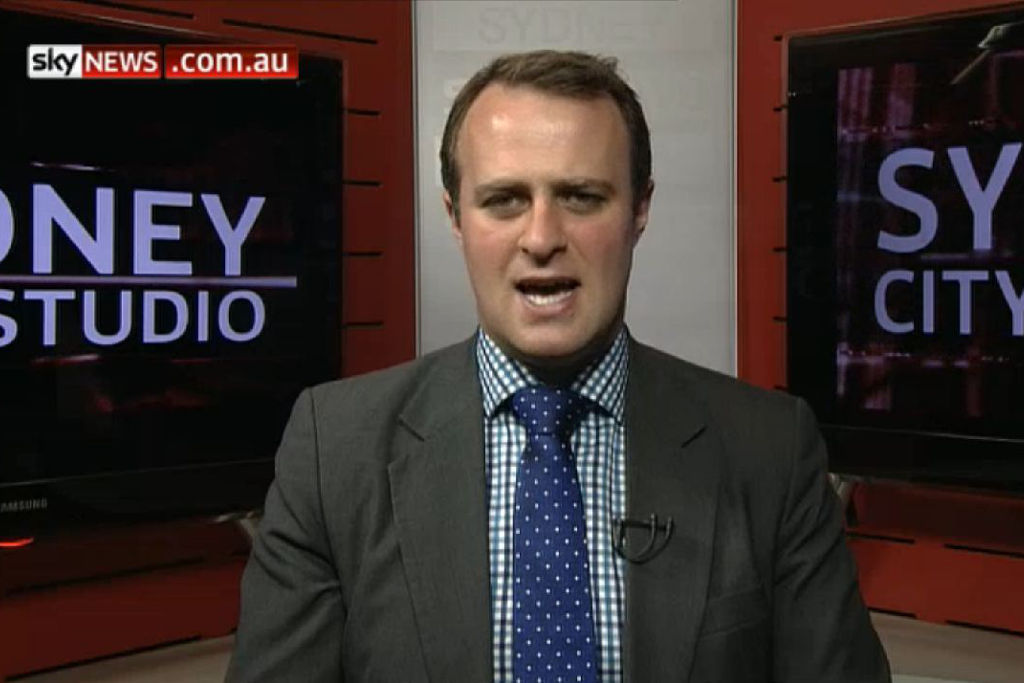Tim Wilson Is Making A Surprising Amount Of Sense About The Parliamentary Burqa Ban
Today in People Who We Didn't Expect To Agree With.

Earlier this afternoon Parliament announced a few new security measurements, one of which meant that anyone wearing a full facial covering — including a niqab or a burqa, neither of which have ever actually entered Australian parliament — would be banned from the public galleries, and made to sit behind glass to watch proceedings instead.
What a proud moment for all of us. #TeamAustralia RT @TrendsAustralia: ‘segregation’ is now trending in Australia http://t.co/sP3VgcSxme
— Sen Raj (@senthorun) October 2, 2014
The new rule comes amidst a movement in Canberra started by Liberal senator Cory Bernardi and supported by Tony Abbott’s most senior advisor, Peta Credlin, who want to ban religious face coverings from being worn anywhere inside Parliament, at any time. It’s just another stage of Bernardi’s ongoing “ban the burqa” campaign — which, apart from being hugely discriminatory, is also fairly misleading: the burqa is a garment that covers a woman from head to toe including mesh over the eyes, which is worn almost exclusively in Afghanistan.
If you’re going to try and ban something you’re terrified of for no reason, it helps to get the name right.
Burqa Debate 1. Correct term is niqab 2. Timing of debate is irresponsible 3. Women should wear as much or as little as they like #auspol — Mariam Veiszadeh (@MariamVeiszadeh) October 1, 2014
Amidst the fear-mongering and race-baiting we’ve come to expect from a divisive issue like this — which, let’s not forget, is based on a series of hypotheticals that are extremely unlikely to ever actually occur — comes a voice of sanity from a fairly unexpected place. Human Rights Commissioner Tim Wilson — the former policy director of the radical neoliberal think-tank, The IPA, who you might remember as the guy who assumes most human rights to fall into the “free speech” category — was just interviewed by David Speers for Sky News. And he made a whole lot of sense.
“Introducing a system where we segregate people on the basis of what they’re wearing — particularly when it’s related to religious garments, and religious freedom sits at the heart of Australian liberal democracy — I think is utterly unjustified. And it’s based on no real evidence or reason, when people have already gone through security checkpoints, and have already been cleared by security.”
Speers points out Parliaments’ justification for the measures — that it’s important to be able to quickly identify any person who interjects from the gallery — and Wilson has an answer for that, too. “Well, we’ve never had this problem before, and I’m not sure it’s about to start,” he says. “The reality is that you can identify people based on sound, and the fact that people self-identify when they speak out.”
“This is not a problem,” he underlines. “There have been these new changes based on a non-problem, and they simply aren’t justified … It also ignores the fact that other parliaments have dealt with this issue without any problem whatsoever.”
But perhaps we shouldn’t be surprised: condemning the measures fits well within Wilson’s “classical liberal” ideology. “This is the oddity,” he says. “A lot of the people who are spruiking this proposal, or equivalent proposals like banning the burqa, are also the same people who can often be fierce defenders of free speech. This is its own form of free expression and free speech: deciding what you wear.
“You don’t have to agree with it … but we have to be tolerant and respectful of others.”